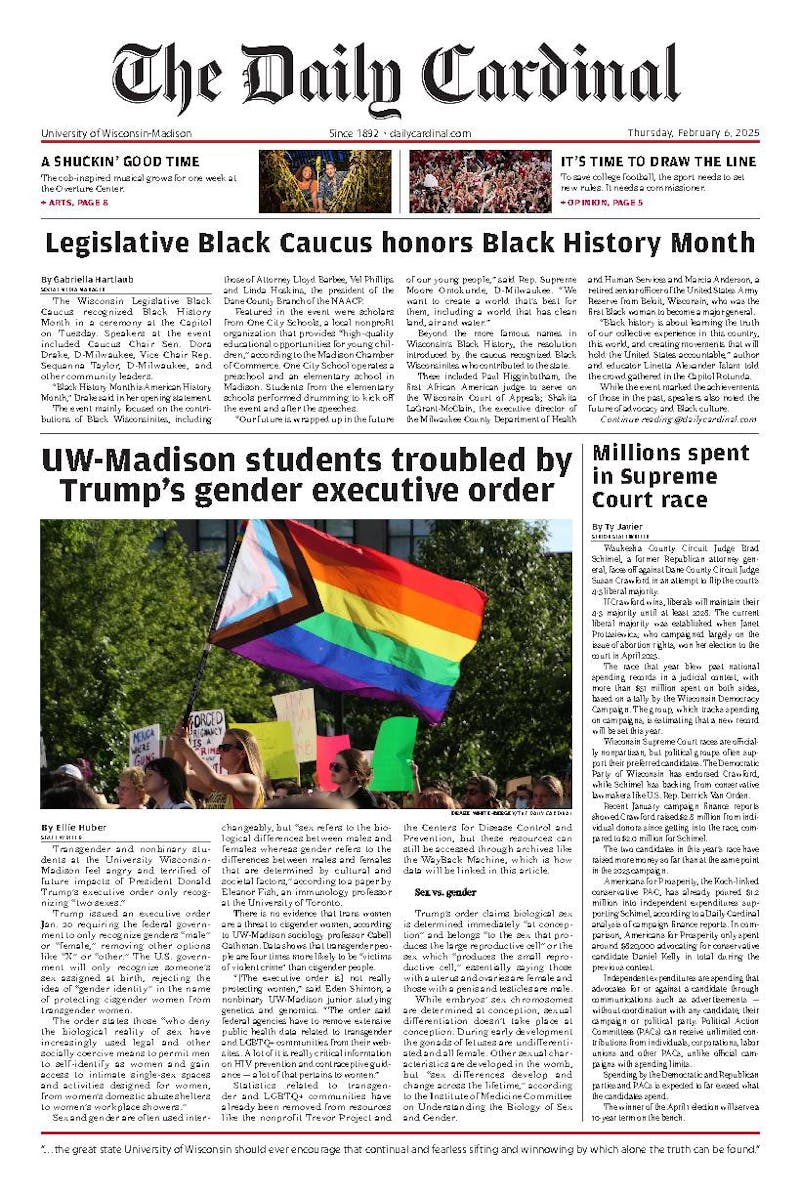Recently, rumors have been circulating around campus that the UW-Veterinary School plans to absorb the recent $800,000 budget cut by terminating the special species program. Special species include exotic pets such as turtles, snakes, rabbits, birds, and sometimes the occasional domestic skunk. Cutting the relatively small, but far reaching, program would devastate Midwest exotic pet owners and rob veterinary students the opportunity to gain valuable, hands-on experience. Good thing this rumor is not at all based on fact.
To sift through the fact and fiction, I spoke with the Chair of the Department of Surgical Sciences at the Vet School, Dr. Dale Bjorling, who, while not unilaterally, makes these important cost-cutting decisions. He assured me that the program is indeed vital to the school, and that it is here to stay. That's right. There is no plan to cut this essential and widely utilized program. The stories are phony and fiction so everyone needs to calm down!
How did this rumor get started? Dr. Bjorling claims that it was an issue of timing. Around the time when they received notification of the budget cut, one of the permanent faculty positions within the special species department was vacated, and because of budget cuts, there was no plan or money available to hire a new faculty member. The Wisconsin State Journal claimed that the program could not exist without two veterinarians. Again, this is false. While Dr. Bjorling acknowledges that having only one exotic species specialist is not ideal, the program has fortunately been able to continue, and will continue, with the expert assistance of two talented residents, Dr. Dominique Keller and Christoph Mans.
Fortunately, the special species program will survive this round of budget cuts, and rightfully so. After visiting the far away land of the UW-Vet School and becoming acquainted with the teaching hospital, faculty members, their animal treating passions and the big giraffe skeleton in the entrance, I was able to witness the special species program's deep impact on the institution.
First of all, the program is vital to UW-Vet School students' comprehensive education and competence in their future careers. Fourth year vet students spend their year in clinical rotations, with an option of a two-week exposure to special species.
According to Dr. Keller, working with exotic pets is vastly different from working with dogs or cats. This ranges from knowing how to hold them, medicate them and examine them for diseases that can be transferred to their owners. Without getting this experience, vet students down the road will not be practiced or comfortable enough to handle these particular animals. Dr. Keller asserted that if the program were to disappear in the future, the UW would be, ""sending out new vets that have a gap in their education.""
Besides offering UW students with critical and unique knowledge, the special species program benefits exotic pet owners throughout the Midwest. Dr. Keller discussed that the UW teaching hospital has a loyal following of pet owners who wouldn't have anywhere else to bring their animals for treatment if the program were to cease.
The UW-Vet School is at the forefront of exotic pet service, and therefore draws people and their pets from all over Wisconsin, Iowa, Illinois, and even Minnesota. Yet, their outreach does not end there. The Vet School also fields about two to four calls a day from veterinary clinics around Wisconsin that need help treating their local exotic animals, and Dr. Keller explained that they are more than happy to map out treatment plans for these people as well.
Although my dog was extremely psychotic growing up, and could only be described as ""special,"" I have never owned a truly exotic pet. But Dr. Bjorling described that pet owners of even the smelliest, slimiest, feathered, and freaky animals form the same emotional bond that the more streamlined pet owners do with their dogs or cats. I would have been devastated had my dog not been able to receive the care she needed. Pet owners of any kind deserve the chance to seek the best medical care for their animals, and the UW special species program offers midwesterners this opportunity.
Despite the rumor mill hard at work, the special species program will continue to yield competent and compassionate UW veterinarians and serve Midwestern pet owners. Yet, looking at recent trends, budgets keep getting cut back. Unfortunately, another big budget cut in the future could result in the extinction of the special species program. Community members and students should not let this happen. We all need to keep investing in and advocating for this special program to insure its future viability.
Melissa Grau is a sophomore majoring in journalism. Please send all feedback to opinion@dailycardinal.com.





